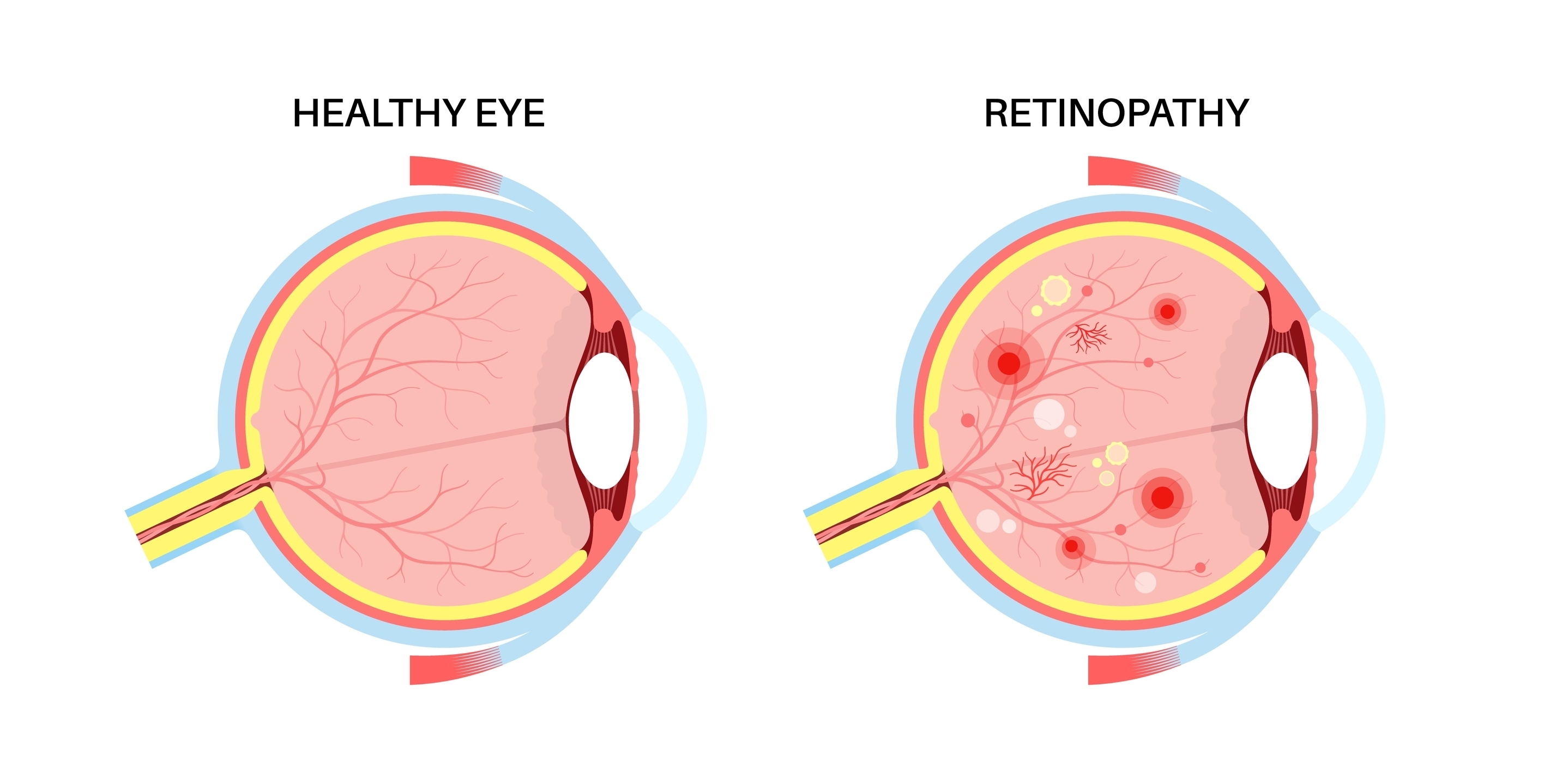
If you or a loved one have diabetes, you already know how important it is to stay on top of your health. But what many people don’t realize is that diabetes doesn’t just affect blood sugar—it can have a serious impact on your vision. At Dr. Lisa Amato & Associates, we’ve seen firsthand how diabetic retinopathy can develop silently and gradually impact eyesight, often without warning. We want to help you understand this condition, its symptoms, and how you can take control of your eye health.
What is Diabetic Retinopathy?
Diabetic retinopathy is an eye condition that occurs when high blood sugar levels from diabetes cause damage to the small blood vessels in the retina, the part of the eye responsible for processing light and sending visual signals to the brain. Over time, these damaged blood vessels can leak fluid or blood, swell, or even close off entirely, leading to vision impairment or blindness if left untreated. Diabetic retinopathy typically develops gradually and may not present noticeable symptoms in its early stages, making regular eye exams crucial for early detection and management.
Recognizing the Symptoms of Diabetic Retinopathy
Diabetic retinopathy is a condition that affects the blood vessels in the retina, the light-sensitive layer at the back of your eye. It develops when high blood sugar levels damage these tiny blood vessels, leading to leakage, swelling, or abnormal growth. Unfortunately, many people don’t notice any symptoms in the early stages, making regular eye exams essential.
As the condition progresses, symptoms may include:
Blurred or fluctuating vision
Dark spots or floaters in your field of vision
Difficulty seeing at night
Colors appearing faded or washed out
Vision loss in advanced cases
If you notice any of these changes, it’s important to schedule an eye exam as soon as possible. Waiting too long could result in irreversible damage.
Treatment Options for Diabetic Retinopathy
The good news is that diabetic retinopathy can often be managed effectively, especially when caught early. At our Riverview, FL, office, we tailor treatments based on each patient’s needs, focusing on slowing the progression of the disease and preserving vision.
Some of the most common treatments include:
Controlling Blood Sugar, Blood Pressure, and Cholesterol: Keeping these levels stable is one of the most effective ways to prevent further damage.
Anti-VEGF Injections: These medications help reduce swelling in the retina and slow the growth of abnormal blood vessels.
Laser Therapy (Photocoagulation): This treatment helps seal leaking blood vessels and prevents new ones from forming.
Vitrectomy: In advanced cases, a surgical procedure may be needed to remove blood or scar tissue from the eye.
The sooner diabetic retinopathy is detected, the more effective treatment can be.
The Power of Routine Eye Exams
While managing diabetes through diet, exercise, and medication is crucial, regular eye exams are your best defense against vision loss. Even if your vision seems fine, annual comprehensive eye exams allow us to detect early signs of diabetic retinopathy before symptoms appear.
In Riverview, we understand that life gets busy, but prioritizing your eye health now can prevent serious complications later. Whether it’s your first eye exam in years or a routine check-up, our team is here to provide personalized care and guidance every step of the way.
Schedule Your Eye Exam Today
Diabetic retinopathy doesn’t have to mean losing your sight. With early detection and the right care, you can protect your vision and maintain a high quality of life. If you have diabetes and haven’t had an eye exam recently, now is the time to take action.
At Dr. Lisa Amato & Associates, we provide comprehensive diabetic eye exams to help detect and manage diabetic retinopathy before it affects your vision. Visit our office in Riverview, Florida, or call (813) 308-0400 to book an appointment today.



